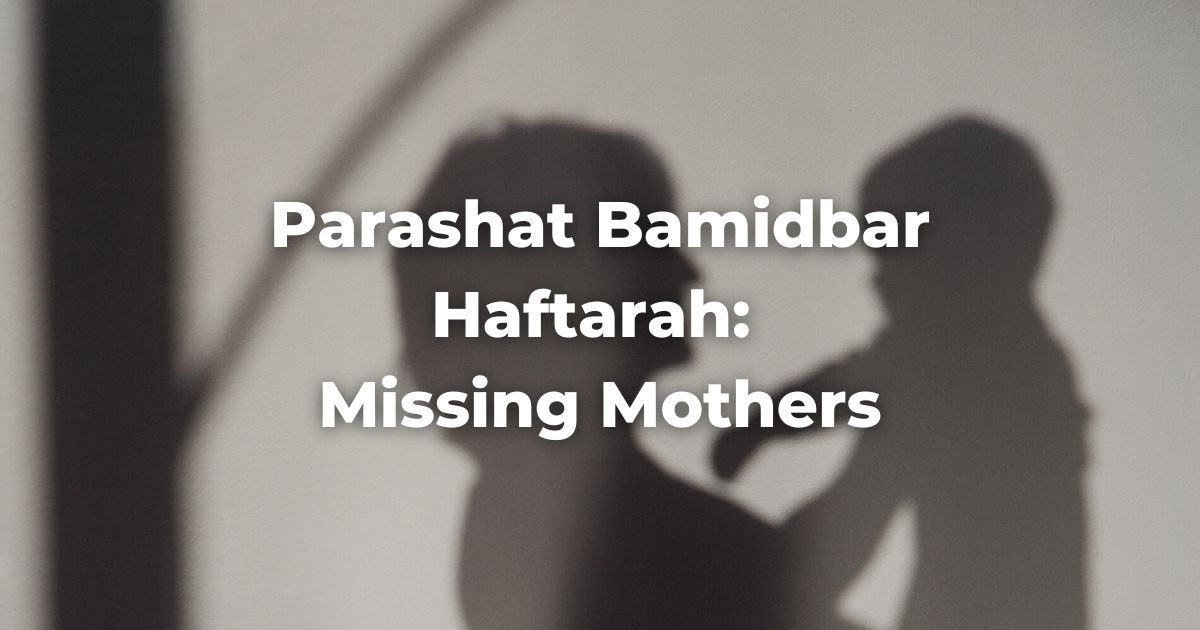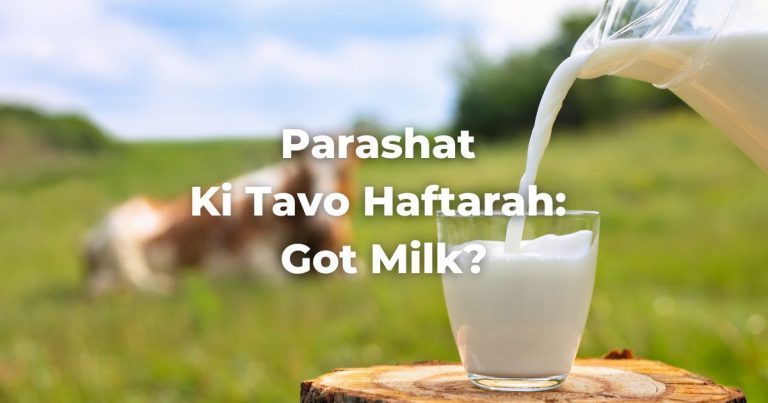The Book of Numbers begins with a list of names, a genealogy organized by line of descent.
We read of the twelve men chosen to help conduct a census, each of them introduced by clan and by the name of their fathers. Likewise, we read of the chieftains of the tribes, each introduced as the son of his father. And we hear mention, once more, of the sons of Aaron, Nadav and Avihu, who left behind no sons when they died before God for bringing foreign fire.
The counting of Israel is centered on the father-son relationship. The whole concept of tribe arises from it.
It’s a beautiful thing, a son so much a product of his father’s upbringing that it quite literally defines who they are. It seems to match reality to the commandment to honor father and mother.
But someone is missing—where are the missing mothers?
We find a mother, Gomer, in our haftarah, Hosea 2. We tell the story of her children’s relationship with her. It is a story that seems to be totally lacking in honor. God commands the prophet, Hosea, to marry a woman of harlotries and he has children with her. God commands that Hosea name each of the children symbolically—Jezreel (the site of a massacre), No Compassion, and Not My People.
Likewise, Gomer’s name may have meaning.
It could mean ending, the one who ends the relationship between God and Israel. It also could have a sexually explicit meaning, the one who helps men to finish.
It gets even worse.
In our haftarah, we read the command to these poorly named children to turn against their mother. They are commanded to riv, to rebuke, reprimand, open a legal case against their mother. It seems anathema to the whole structure of the Israelite people.
How could children do this to a parent?
According to many of the medieval commentators, the Book of Hosea happens only on a metaphorical level—Gomer does not exist or, at least, Hosea does not in face marry a prostitute. She serves only as a symbol of Israel having gone astray from God, having whored after other nations. However, even if this is the case, we are still constructing a metaphor in which it is right and proper for children to insult and shame their mother when she acts inappropriately.
As the chapter continues, it becomes clear that it is through chastisement, through being put back into that same wilderness for which the Book of Numbers is named, that Gomer, and thus Israel metaphorically, can be returned to a state in which they can be honored. The haftarah ends with a beautiful covenantal ceremony, a re-wedding of God and Israel.
But what are we to do with this?
How can we understand the commandment to honor father AND mother with the reality that fathers are often honored and mothers are rebuked by their own children while God cheers from the sidelines?
An answer can be found in the daughter of the text, (Not) Compassionate.
Hidden in her name is the word meaning womb. She is the embodiment of female-ness. We move from Gomer, the finisher, the end of the genealogy, to Womb, the one who provides continuation of the generations by means of compassion. Hosea presents the dystopian world in existence, the world of scorned mothers, side-by-side with a utopian world of compassion as the foundation of covenant, of relationship between God and Israel, spouses, and parent and child.
We read the bad with the good and work to bring the good into reality.
See more: Parashat Bamidbar
Originally posted as part of the Conservative Yeshiva at the Fuchsberg Jerusalem Center’s Torah Sparks. Support TorahRefers to the first five books of the Hebrew Bible, the Tanakh, also called the Five Books of Moses, Pentateuch or the Hebrew equivalent, Humash. This is also called the Written Torah. The term may also refer to teachings that expound on Jewish tradition. Read more learning from the Fuchsberg Jerusalem Center/Conservative Yeshiva for leaders and seekers around the world here.
Authors
-

Bex Stern Rosenblatt is the Conservative Yeshiva’s Faculty-in-Residence for the Mid-Atlantic Region of the United States, teaching Tanach, using the techniques of close-reading, theater, feminist readings, and traditional commentators. Bex also directs the CY’s recruitment efforts in North America. After finishing her B.A. in History and German at Williams College, Bex received a Fulbright Grant to Austria. She later earned an M.A. in TanakhAn acronym for the name of the Hebrew Bible: Torah, Neviim, and Ketuvim. Read more from Bar Ilan University and has also studied at the Conservative Yeshiva and Bina Jerusalem. Bex is the founder of HavrutaA study partner. A hevruta is more than just a ‘study buddy’ it is a serious and personal relationship between colleagues. Also spelled: Havruta Read more Tel Aviv, an organization that facilitates guided pair-learning of the Tanakh.
View all posts -



The Fuchsberg Jerusalem Center (FJC) is a home in the heart of Jerusalem where leaders and seekers can find an authentic place in Jewish tradition to call their own. FJC offers opportunities to study, pray and explore within an egalitarian and inclusive setting, creating multiple pathways for finding personal and communal meaning.
View all posts






